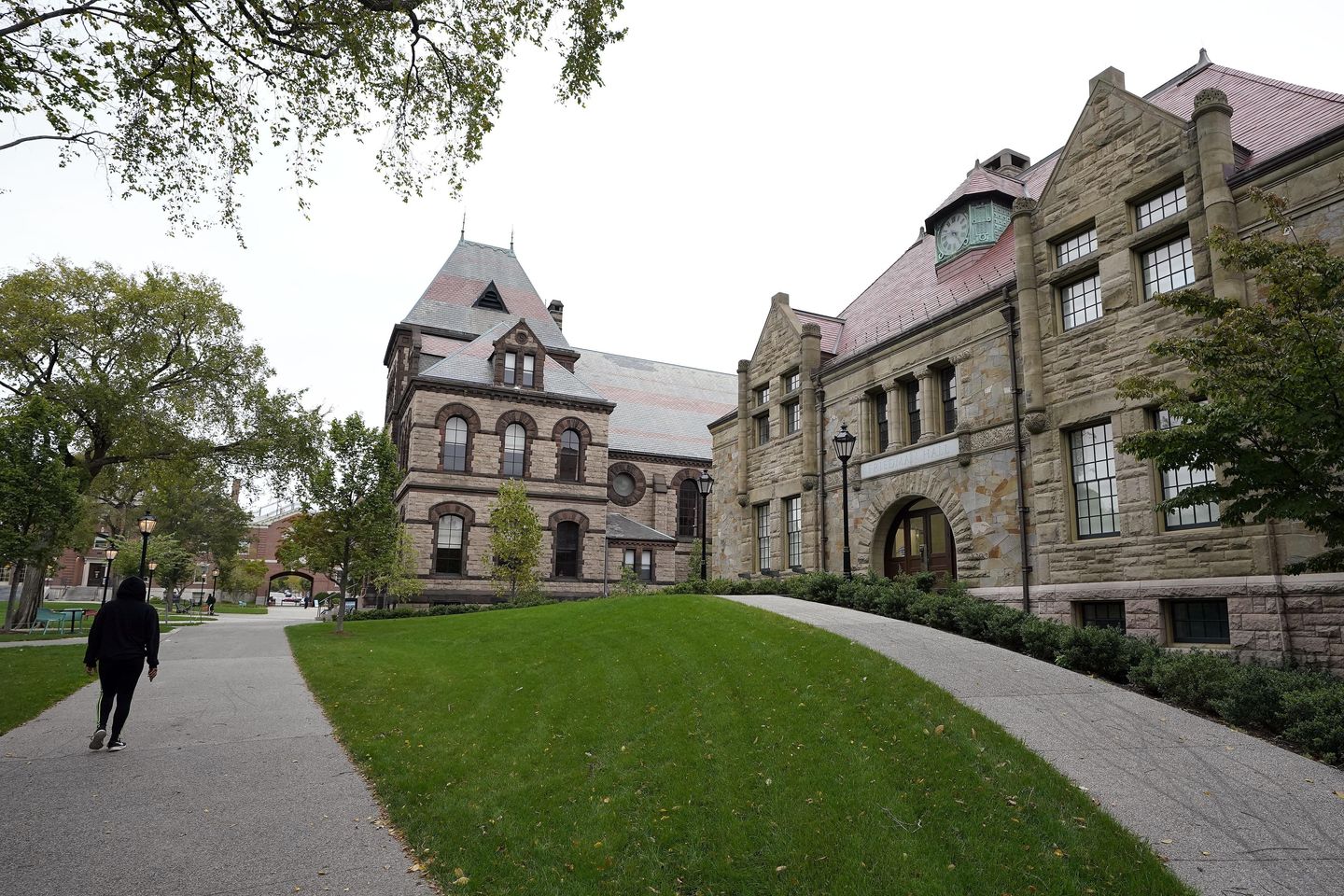
Brown University has dismissed all disciplinary charges against a student journalist who sent a Department of Government Efficiency-inspired email asking administrators what they do all day.
Kirsten N. Wolfe, an associate disciplinary dean at the Ivy League institution, told sophomore Alex Shieh in a letter Wednesday that an administrative review determined he was “not responsible” for any misconduct.
“Thus, no discipline will be imposed,” Ms. Wolfe wrote in the brief letter shared with The Washington Times.
Mimicking an email that Elon Musk’s DOGE sent to federal workers, Mr. Shieh asked 3,805 administrators at the Ivy League campus in a March 18 email to “describe what tasks you performed in the past week” to explain what his $93,046 yearly tuition and fees pay for.
Wednesday’s letter confirmed that a faculty representative who met with Mr. Shieh last week cleared him of the charge of illicitly using “Brown” in the name of his independent conservative publication.
The Rhode Island school had previously dropped charges that he emotionally harmed employees and misrepresented himself as a journalist in the email.
Mr. Shieh, who claimed Brown was looking for excuses to punish his freedom of expression, said Wednesday that university president Christina Paxson should “resign for overseeing this debacle and ignoring numerous appeals to drop the charges.”
“It should have never happened,” said Mr. Shieh, an Asian American computer science and economics major from New Hampshire. “Journalism should be protected, and not even require such proceedings.
Brown spokesman Brian E. Clark insisted the investigation had nothing to do with free speech. In a statement Wednesday, he said the school followed its student conduct procedures and that federal privacy laws prevented him from commenting on the case.
“Those procedures have guided our actions since this issue originated,” Mr. Clark said. “Students have ample opportunity to provide information and participate directly in that process to ensure that all decisions are made with a complete understanding of circumstances.”
Mr. Shieh, 20, said he received about 20 responses to his email, ranging from hostile to profane. He published the names and titles of school employees in a database on his publication’s website under the categories “DEI,” “redundant” and “bull—-t” jobs.
The Foundation for Individual Rights and Expression, a Philadelphia free speech group that sent two letters urging Brown administrators to drop the charges against Mr. Shieh, said the investigation violated the school’s free speech policies in a series of unsupported disciplinary charges.
For example, the group noted that fair-use laws protected Mr. Shieh’s use of “Brown” for a student publication that did not claim to represent the school.
“While FIRE is grateful Brown eventually reached the correct conclusion in this case, the process by which it investigated Shieh was wholly unacceptable,” Dominic Colleti, a FIRE program officer, said Wednesday. “Today’s decision affirms that student journalists can continue to boldly report on Brown’s affairs and should confirm what FIRE has argued for months: student journalism is not grounds for disciplinary action.”
According to the website of the Brown Spectator, the independent publication Mr. Shieh helped revive, he sent the March 18 email to learn why the elite school charges $93,046 a year in tuition and fees but has a $46 million “structural budget deficit.”
The website identifies 49 administrators in “potentially illegal” diversity, equity and inclusion positions that it blamed for the Trump administration canceling $510 million in federal grants to the school last month.
The school notified Mr. Shieh on March 20, two days after his email, that a disciplinary inquiry was underway. He said the school ultimately threatened to place him on probation, limiting his participation in campus life.
Rep. Troy Nehls, Texas Republican, sided with Mr. Shieh in a letter this month that asked Brown to explain how it uses its $7.2 billion endowment to “improve the student experience or bring down tuition.”












